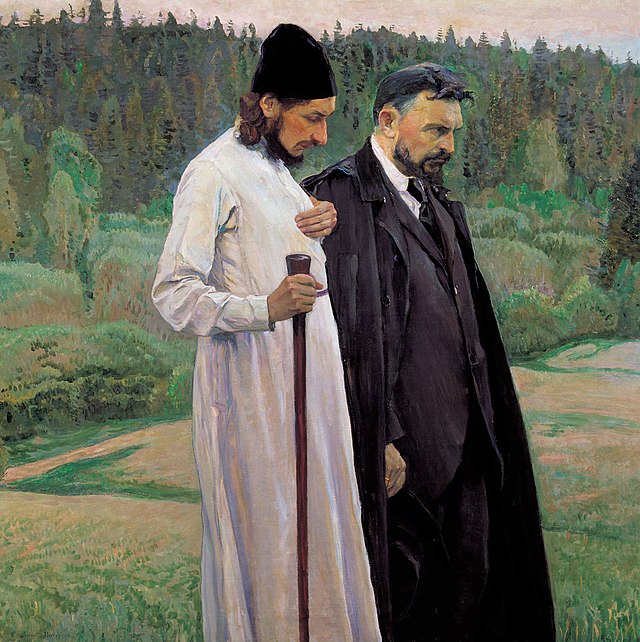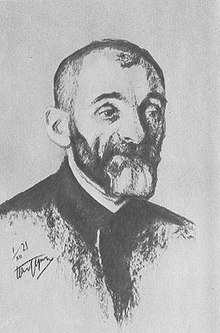Loading AI tools
From Wikipedia, the free encyclopedia
Russian philosophy includes a variety of philosophical movements. Authors who developed them are listed below sorted by movement.

While most authors listed below are primarily philosophers, also included here are some Russian fiction writers, such as Tolstoy and Dostoyevsky, who are also known as philosophers.
Russian philosophy as a separate entity started its development in the 19th century, defined initially by the opposition of Westernizers, advocating Russia's following the Western political and economical models, and Slavophiles, insisting on developing Russia as a unique civilization. The latter group included Nikolai Danilevsky and Konstantin Leontiev, the early founders of eurasianism. The discussion of Russia's place in the world has since become the most characteristic feature of Russian philosophy.
In its further development, Russian philosophy was also marked by deep connection to literature and interest in creativity, society, politics and nationalism; cosmos and religion were other notable subjects.
Notable philosophers of the late 19th and early 20th centuries include Vladimir Solovyev, Vasily Rozanov, Lev Shestov, Leo Tolstoy, Sergei Bulgakov, Pavel Florensky, Nikolai Berdyaev, Pitirim Sorokin, and Vladimir Vernadsky.
From the early 1920s to late 1980s, Russian philosophy was dominated by Marxism.
A handful of dissident philosophers survived through the Soviet period, among them Aleksei Losev. Stalin's death in 1953 gave way for new schools of thought to spring up, among them Moscow Logic Circle, and Tartu-Moscow Semiotic School.


Pre-Solovyov
Seamless Wikipedia browsing. On steroids.
Every time you click a link to Wikipedia, Wiktionary or Wikiquote in your browser's search results, it will show the modern Wikiwand interface.
Wikiwand extension is a five stars, simple, with minimum permission required to keep your browsing private, safe and transparent.